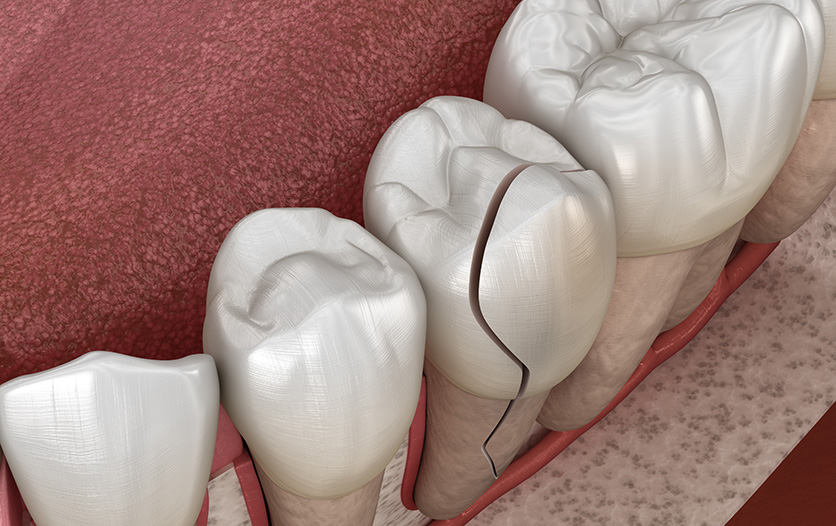
How Sedation Dentistry Can Help You Overcome Dental Anxiety
Dental anxiety is a common issue that affects many people, causing them to feel uneasy, fearful, or even panicked at the thought of visiting the dentist. As many as 22% of people in the United States avoid going to the dentist for that reason, according to the American Dental Association (ADA). An ADA study found fear of pain is the most common reason for dental anxiety, followed by fear of injections.
Are you part of those statistics? Then, sedation dentistry may be the solution as it can allow you to receive the care you need in a comfortable and relaxed setting.
Let’s take a look at all the factors involved.
What is Sedation Dentistry?
It involves the use of medication to help patients relax and feel more comfortable during dental procedures. There are several levels of sedation available, ranging from mild relaxation to deeper sedation that may cause the patient to sleep through the procedure. The type of sedation used will depend on the patient’s level of anxiety, the complexity of the procedure, and the dentist’s recommendations.
How It Works
Sedation dentistry typically involves the use of medication that is taken orally (Read more about oral sedation dentistry) or through an IV. The medication helps the patient to feel more relaxed and at ease, reducing anxiety and discomfort. Depending on the level of sedation used, the patient may feel drowsy but still be able to respond to the dentist’s requests, or they may be asleep throughout the procedure.
Benefits of Sedation Dentistry for Dental Anxiety
If you struggle with dental anxiety, this type of dentistry can offer several benefits, including:
- Reduced anxiety: Feel more comfortable and relaxed during your appointment.
- Increased comfort: Reduced discomfort makes it easier to tolerate longer or more complex treatments.
- Faster appointments: When you’re relaxed, dentists can often complete procedures more quickly, reducing the amount of time you have to spend in the chair.
- Improved oral health: With fear no longer preventing you from seeking care, you maintain good oral health and prevent more serious dental problems in the future.
Types of Sedation
- Nitrous oxide: Also known as laughing gas, nitrous oxide is a mild sedative that is inhaled through a mask placed over the nose. Nitrous oxide helps patients feel more relaxed and at ease during their appointment.
- Oral sedation: Oral sedation involves taking a pill about an hour before the procedure. It typically causes drowsiness, although you will remain awake.
- IV sedation: Intravenous (IV) sedation is a deeper form of sedation that is administered through an IV in the patient’s arm. With IV sedation, patients are still conscious but may not remember the procedure afterward. It’s delivers more predictable results than oral sedation and works well for 99% of patients.
- General anesthesia: General anesthesia is the deepest form of sedation and involves putting the patient to sleep throughout the procedure. This type of sedation is typically reserved for more complex procedures or patients with severe dental anxiety.
What to Expect During Your Appointment
If you’re considering sedation dentistry, it’s important to discuss your options with your dentist or oral surgeon. They can help you choose the right type of sedation for your needs and explain what to expect during the appointment.
In general, during an appointment, you’ll be given the medication and allowed to relax for a period of time while the procedure takes effect. Once you’re relaxed and comfortable, the dentist will begin. Throughout the procedure, you’ll be monitored closely to ensure your safety and well-being. After the procedure is complete, you’ll be allowed to rest until the effects wear off. You’ll need to have someone drive you home from the appointment and may need to rest for the remainder of the day.
Is Sedation Dentistry Safe?
It is generally considered safe, but there are risks associated with any type of medication. It’s important to discuss your medical history and any medications you’re taking with your dentist before undergoing the procedure. They can help determine if you’re a good candidate and recommend the appropriate fit for your needs.
It’s also important to choose a qualified dentist or oral surgeon who has experience administering sedation. They should be trained and able to monitor you closely throughout the procedure to ensure your safety.
Other Tips for Overcoming Dental Anxiety
There are several other strategies that can help you overcome dental anxiety, including:
Talk to your dentist: Let your dentist know about your anxiety and ask them to explain the procedure in detail. Knowing what to expect can help reduce feelings of stress and worry..
Use relaxation techniques: Deep breathing, meditation, and visualization techniques can help you relax during your appointment.
Listen to music: Bring headphones and listen to calming music to help distract you.
Bring a friend or family member: Bringing a friend or family member can help you feel more supported and less anxious.
Consider therapy: If you have severe dental anxiety, consider talking to a therapist who can help you develop coping strategies and overcome your fear.
Final Words
Dental anxiety can be a significant barrier to getting the dental care you need. Fortunately, sedation dentistry can help many people overcome their fear and discomfort during dental procedures. By reducing anxiety, increasing comfort, and improving oral health, it can be a valuable tool for those who are struggling. Be sure to discuss your options with your dentist and choose a qualified provider who can ensure your safety and well-being.
At Evers Dental, we do everything to help you feel at ease during any dental procedure. If you suffer from anxiety and would like to discuss your options, don’t hesitate to reach out to us. Contact us today for a consultation or to schedule an appointment.
Keep reading:
How much does it cost? 5 facts about dental implant prices
What you should know about tooth extraction cost
Time for a wisdom tooth extraction? The signs to look for




